Vidya Bhawan Krishi Vigyan Kendra
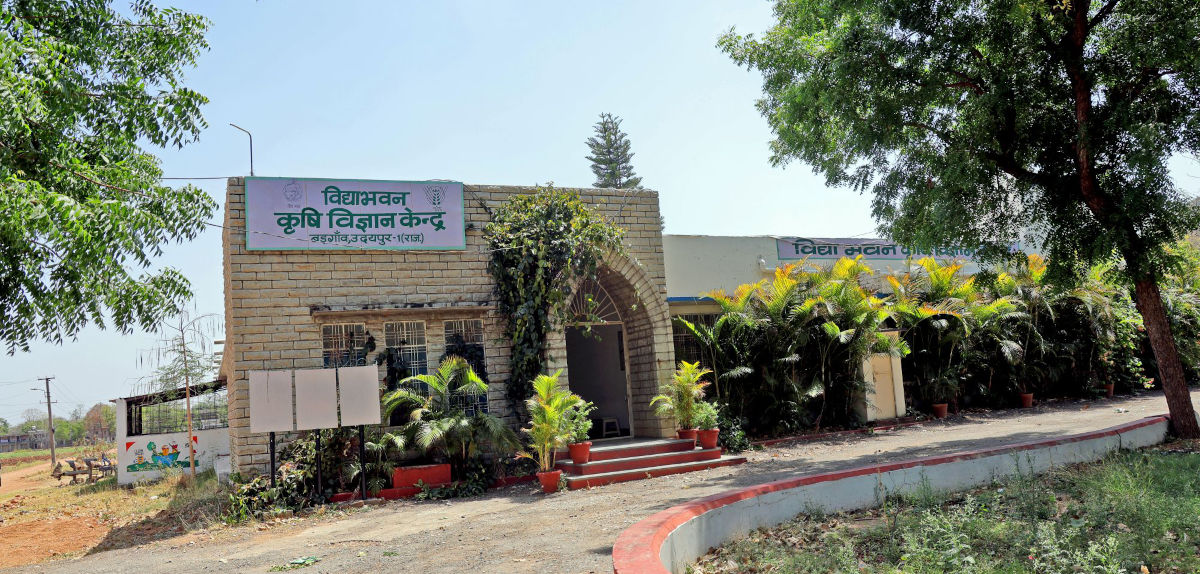
Overview and Introduction of the Institution
The Vidya Bhawan Krishi Vigyan Kendra (VBKVK) was established in 1984 through a Memorandum of Understanding (MoU) signed between the Vidya Bhawan Society, Udaipur and the Indian Council of Agricultural Research (ICAR), New Delhi. As part of the nationwide network of KVKs (Farm Science Centres), its core objectives include refining agricultural technologies, providing training to farmers, rural youth, and extension personnel, and implementing programs of national significance.
VBKVK also focuses on developing sustainable technology models at the village level, which can be replicated by local organizations for the benefit of the farming community and extension workers. The conceptual framework for KVKs across India was developed in 1973 under the leadership of Dr. Mohan Sinha Mehta, the founder of Vidya Bhawan Society.
Mandates of Krishi Vigyan Kendra (KVK)
- Technology Assessment and Demonstration:
- Conduct On-Farm Testing (OFT) to assess location-specific technology under real farming conditions.
- Organize Frontline Demonstrations (FLDs) to showcase the effectiveness of improved agricultural technologies.
- Training:
- Provide need-based and skill-oriented training to:
- Practicing farmers and farm women
- Rural youth for self-employment
- Extension personnel to update their knowledge and skills
- Provide need-based and skill-oriented training to:
- Extension Activities:
- Organize field days, kisan melas, exhibitions, awareness campaigns, and other extension activities.
- Develop and disseminate information through print and digital media.
- Production and Supply of Quality Inputs:
- Produce and supply quality seeds, planting materials, livestock strains, bio-products, and other inputs.
- Resource and Knowledge Centre:
- Act as a knowledge and resource center for agricultural technology.
- Maintain linkages with research stations, universities, and line departments.
KVK tailors its activities based on the local agro-climatic conditions, cropping patterns, and socio-economic needs of the area it serves.
Objectives of Krishi Vigyan Kendra (KVK)
Defined specific objectives for Krishi Vigyan Kendras (KVKs) that align with its mission to bring agricultural innovations to the grassroots level.
- Technology Assessment and Refinement:
- Conduct On-Farm Testing (OFT) for identifying location-specific agricultural technologies under real conditions.
- Frontline Demonstration (FLD):
- Organize FLDs to show the production potential of technologies on farmers’ fields before wider adoption.
- Capacity Building through Training:
- Organize skill-oriented training programs for:
- Practicing farmers and farm women
- Rural youth (for self-employment)
- Extension personnel (to update knowledge and skills)
- Organize skill-oriented training programs for:
- Work as Knowledge and Resource Centre:
- Act as a technology resource center for the district.
- Facilitate dissemination through the Agricultural Technology Information Centre (ATIC).
- Production and Supply of Inputs:
- Produce and distribute quality seeds, planting materials, bio-products, and livestock strains to farmers.
- Extension and Outreach Activities:
- Conduct field days, exhibitions, Kisan Melas, awareness campaigns, and other extension events.
These objectives bridge the gap between research institutions and the farming community, ensuring that scientific innovations lead to practical, sustainable, and profitable outcomes for rural India.
The Vidya Bhawan Krishi Vigyan Kendra (VBKVK) was established in 1984 through a Memorandum of Understanding (MoU) signed between the Vidya Bhawan Society, Udaipur and the Indian Council of Agricultural Research (ICAR), New Delhi.
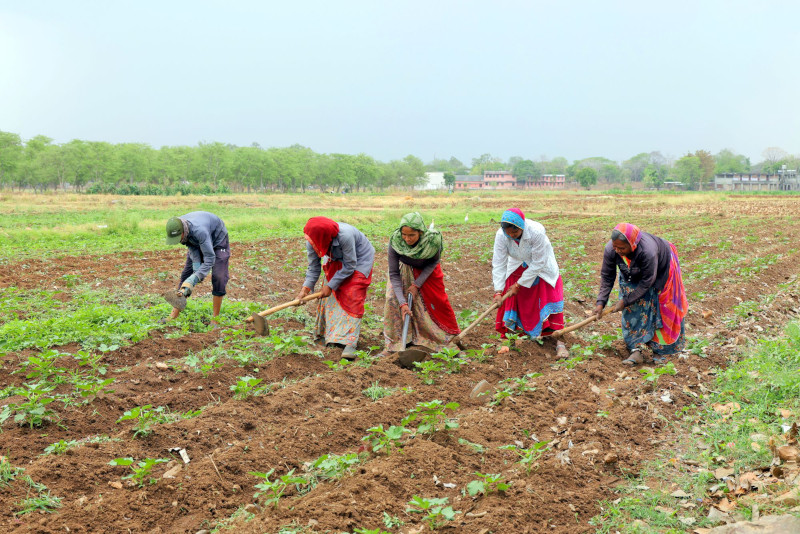
KVK Farm
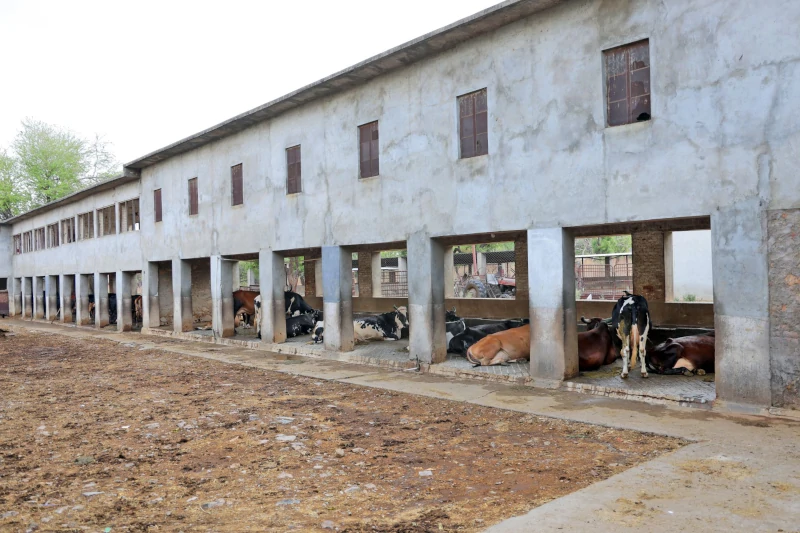
Dairy Unit
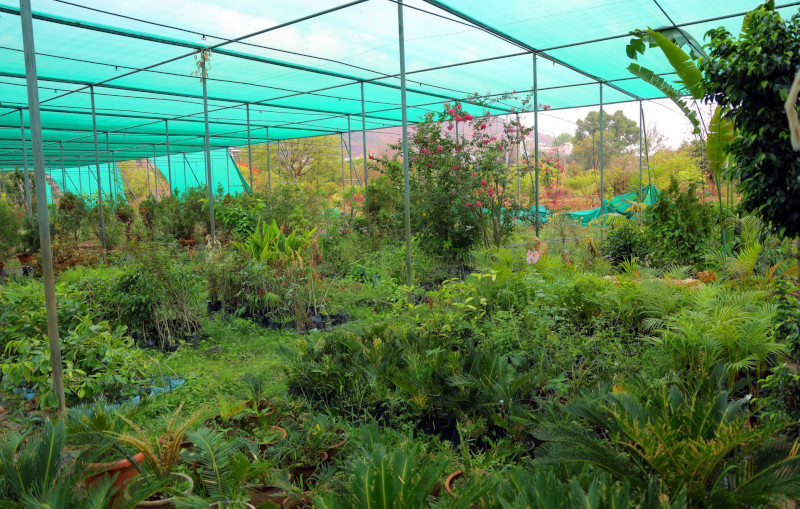
Nursery Unit
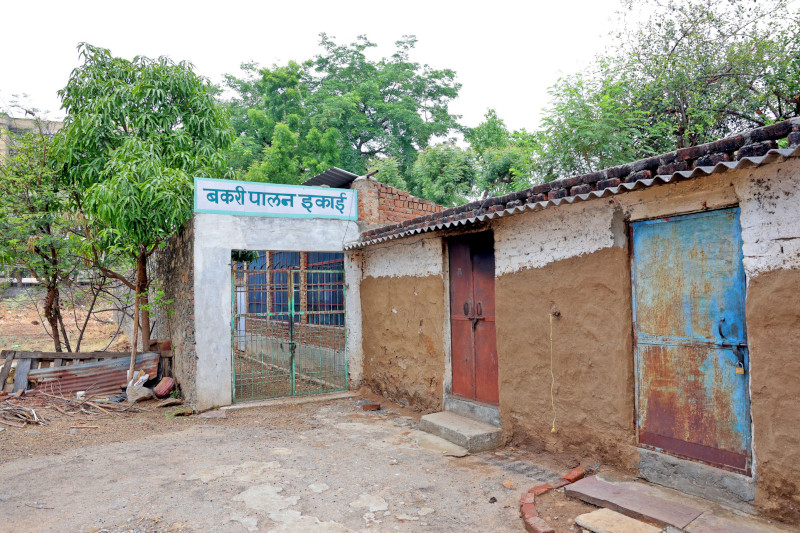
Goat Unit
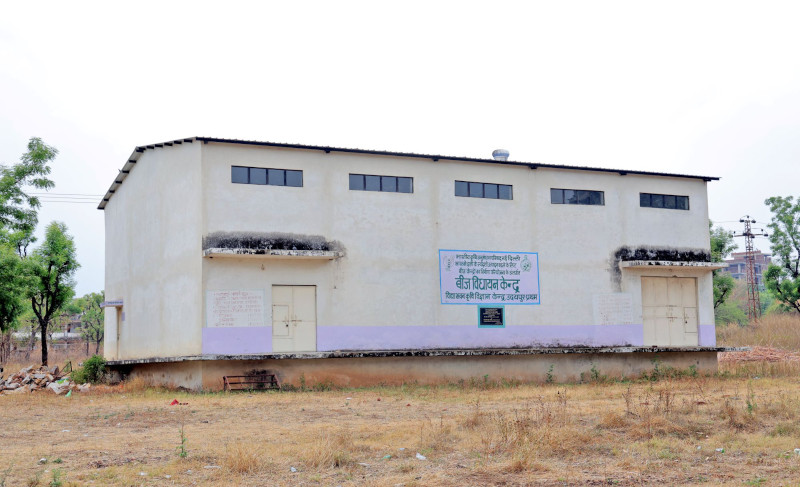
Seed Processiong Unit
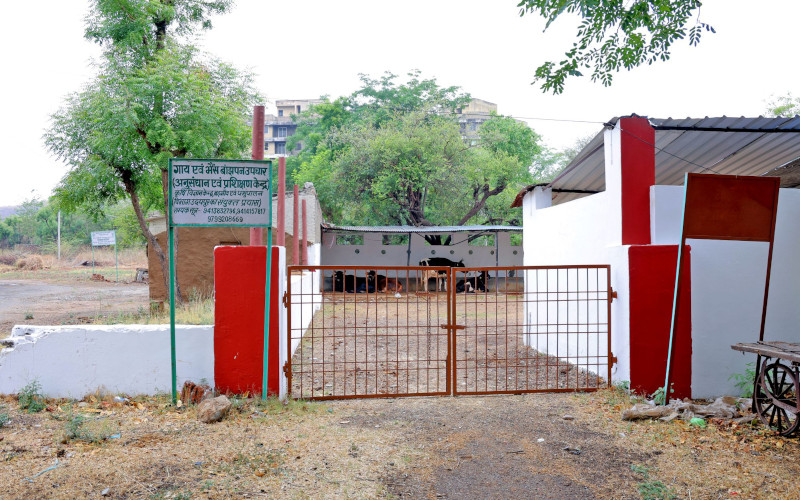
Cow & Goat Unit
Production Units at VBKVK
VBKVK is producing different products for demonstrations and sale.
- KVK Farm: The KVK farm cultivates and produces seeds of cereals, pulses, oilseeds, and seasonal vegetables.
- Dairy Unit: A well-established dairy unit is operated by KVK, which supplies fresh milk and milk products to urban consumers through a door-to-door delivery system.
- Nursery Unit: The institute maintains a nursery for the production of fruit plants, vegetable saplings, and ornamental plants, which are available for sale throughout the year.
- Vermicompost Unit: High-quality vermicompost manure is produced and made available at the KVK for farmers and gardeners.
- Poultry and Goat Unit: High-yielding breeds of poultry and goats, suited to local agro-climatic conditions, are reared at the KVK. These are demonstrated and distributed within the operational area based on local demand.
- Seed Processing Unit: The KVK also engages in the production and processing of improved varieties of pulse seeds on farmers’ fields.
Services
- Hostel Unit: There is a well-furnished farmers’ hostel and mess with facilities for lodging and boarding of 150 persons.
- Training Halls: There are three conference halls with a total seating capacity of 180, equipped with Audio-Visual Aids.
- Centre for Bovine Infertility Treatment, Training and Research: This training centre provides training to Veterinary Doctors and LSAs of various institutions for bovine genetic improvement, reproductive management, and infertility treatment. It aims to increase the income of cattle owners and ensure their well-being. The centre has trained thousands of vets and paravets from institutions like the Animal Husbandry Department, AMUL, BAIF, and Dugdh Sagar.
Ongoing Projects
ARYA: Attracting and Retaining Youth in Agriculture
MARVI: Managing Aquifer Recharge and Sustaining Groundwater Use through Village-level Intervention
NFSM: Oilseed
STC
Model Pulse VillageTribal Sub Plan (DAPST)
IPM: Integrated Pest Management in cereals, pulses, and horticultural crops in Udaipur, Rajasthan
Research Programmes: Initiatives to enhance the production and productivity of castor, safflower, sunflower, groundnut, sesame, etc., and facilitate technology transfer

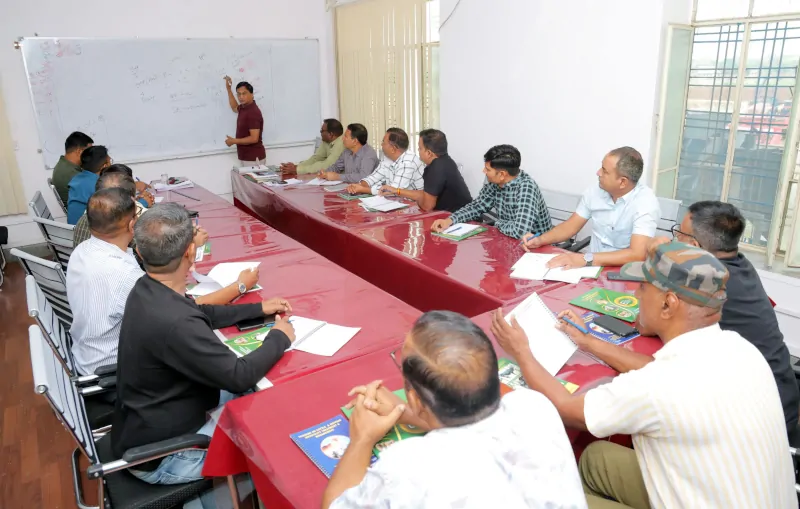
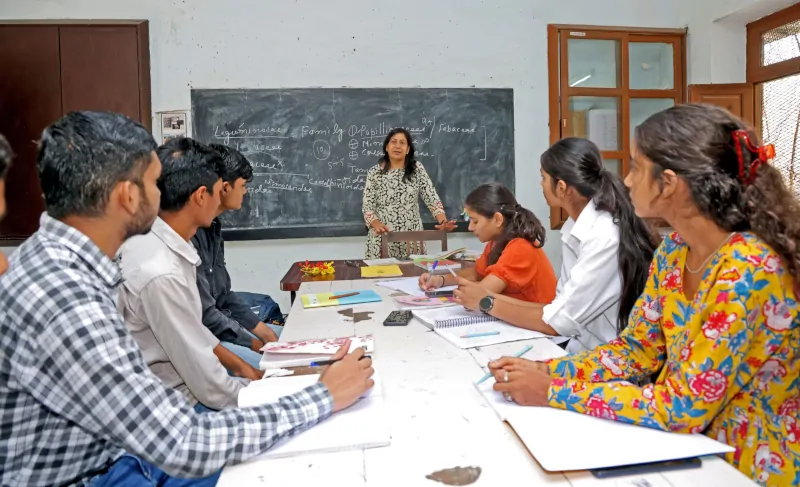
The institute regularly conducts training programs for partner farmers, farm women, rural youth, and extension functionaries both at the KVK campus and directly in the farmers’ fields. These trainings focus on crop production, vegetable cultivation, fruit orchard management, nursery raising, gardening, soil health, natural farming, goat farming, dairy development, backyard poultry, artificial insemination, nutritional security, processing and value addition, integrated pest management, integrated disease management, water saving techniques, farm implements, micro irrigation, integrated farming systems, and allied sectors.
Krishi Vigyan Kendra, Badgaon, Vidya Bhawan has been awarded Pandit Deendayal Upadhyay Rashtriya Krishi Vigyan Protsahan Puraskar (Zonal) 2016 for Zone II.
The KVK has taken an innovative initiative in establishing techno-park which consists of models for demonstration of new technologies for higher production, productivity and profitability.
The techno-park has earned a lot of appreciation for the efforts of KVK from farmers, administrators and citizens of Udaipur district. Special focus has been given towards drudgery reduction for farm women, who undertake majority of agricultural operations, practically demonstrating farm equipments / implements aimed at drudgery reduction.
This award is given by Shri Radha Mohan Singh, Hornable Minster of Agriculture and Farmers Welfare, Government of India in inaugural function of three-day (15th-17th March) farmers’ fair, to be hosted at the Mela Ground, IARI, New Delhi, will showcase innovations in farming technologies.
- 0294–2450800, 9799208669
- https://vidyabhawan.in/vidya-bhawan-Krishi-Vigyan-Kendra
- Badgaon, Udaipur - 313 011, (Raj.) India




















































